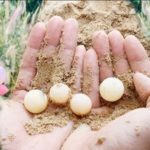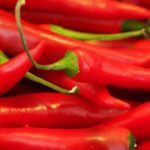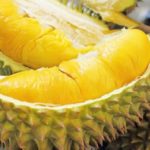Watch the video “Learn how to Choose Durian from a Fruit Seller with over 20 Years of Experience | Bach Hoa Xanh”

1. What is Durian? Nutritional Value of Durian
Durian, known as the “King of Fruits,” is a tropical fruit native to Southeast Asia. It has a strong and rich taste and is packed with nutrients. Durians are large in size, with a hard outer shell and numerous sharp spikes covering the surface.
Durian is a nutritious fruit that is high in fiber and vitamins. Its nutritional value includes:
- Fiber: 9 grams
- Carbohydrates: 66 grams
- Protein: 13 grams
- Fat: 4 grams
- Other substances: …, …, …, …
2. How to Choose the Best Durian
To ensure that you choose ripe and high-quality durians, follow these methods:
Look for Distinct Lobes
Choose durians that are round and have more lobes, as they will have more flesh and fewer empty spaces. Avoid durians with dented or misshapen appearances, as they may lack flesh or have fewer lobes.
Observe and select durians with distinct lobes. Type 1 durians have a round and even shape with 4-6 lobes or more. Type 2 durians (small or inferior durians) only have 2-3 lobes. Choose durians with 5-6 distinct and even lobes.
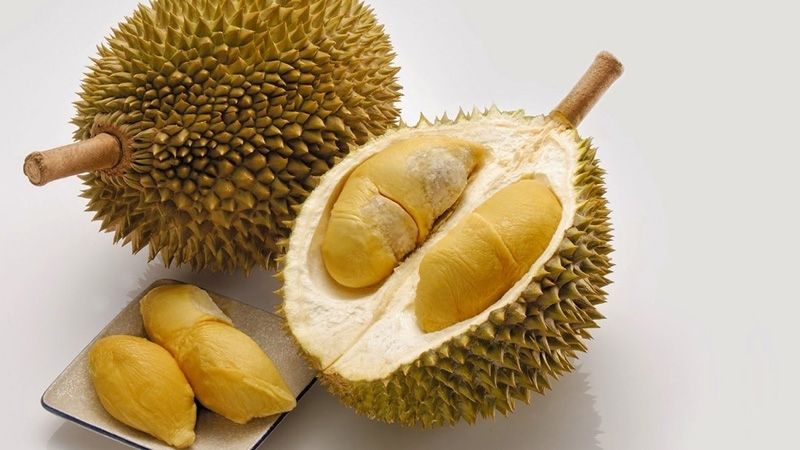
Check for Freshness
Press the stem to feel its moisture. If it is not moist, then the durian is overripe and may have lost its desired taste and texture.

Examine the Spikes
Choose durians with big, firm, and evenly spaced spikes. Ripe durians will have spikes that can be pressed together without feeling too soft. Avoid durians with excessively sharp or soft spikes.
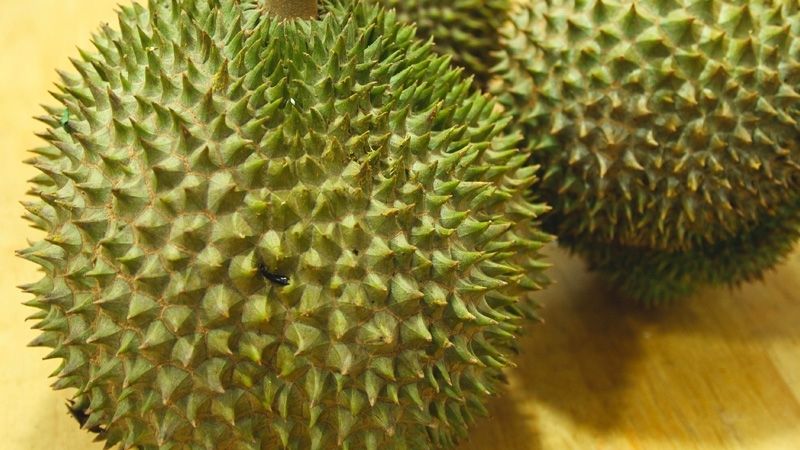
Shake the Durian
Gently shake and tap on the durian. If you hear a thud or knocking sound, it means the durian has thick flesh and small, sweet seeds. If you hear a hollow sound, it means the durian is not good.
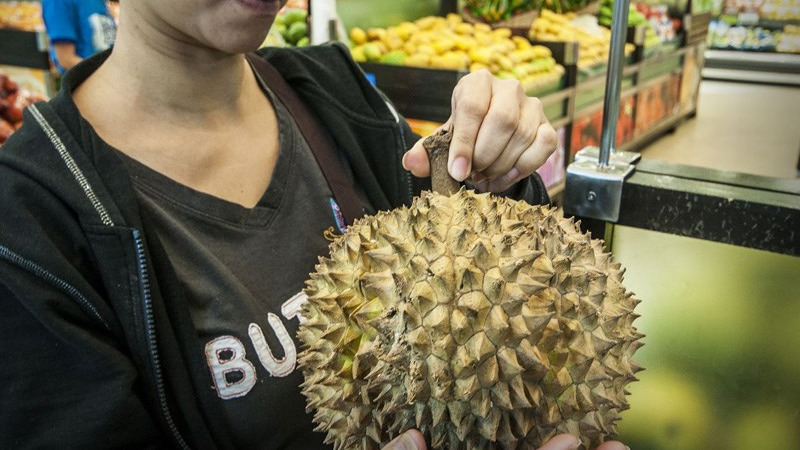
Smell the Aroma
Select durians with a strong and distinctive aroma, which can be smelled from a considerable distance.
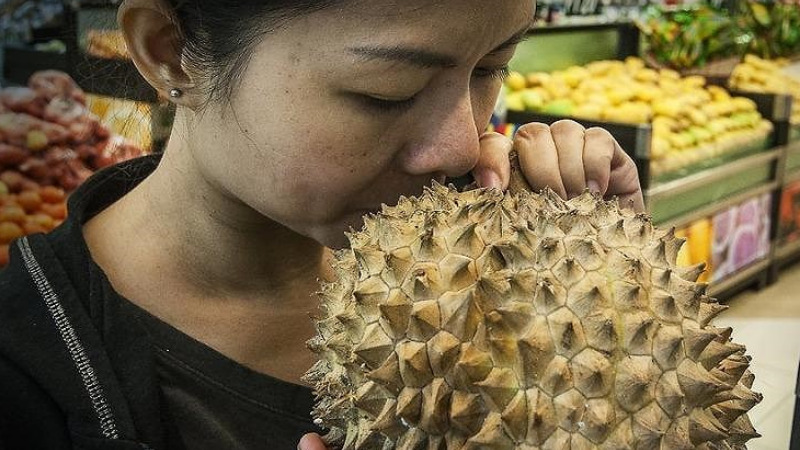
Use a Durian Testing Tool
Durian sellers may have tools to test the quality of the durian. A good durian should produce a sound like “crack crack” or “pop pop” when tapped on its shell.
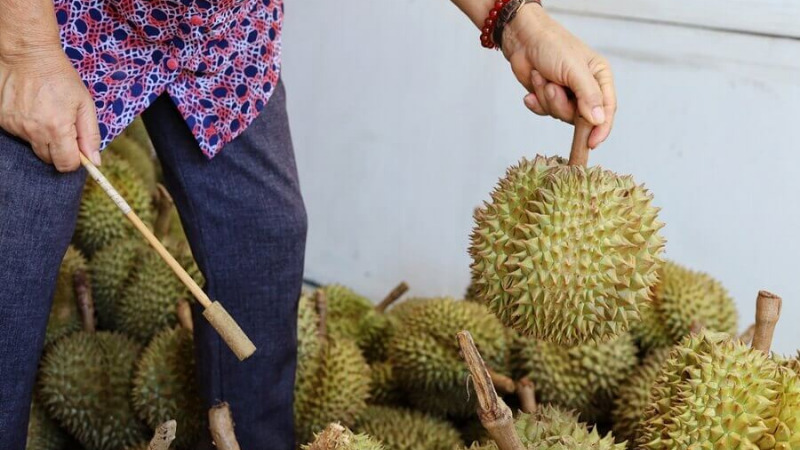
3. How to Choose Pesticide-Free Durian
Check the Spikes and Stem
Naturally ripened durians have fresh, green, and firm spikes and stems. When you press the stem, you will feel the moisture from the sap, and when you press two spikes together, they will be firm instead of soft like unripe or chemically ripened durians.
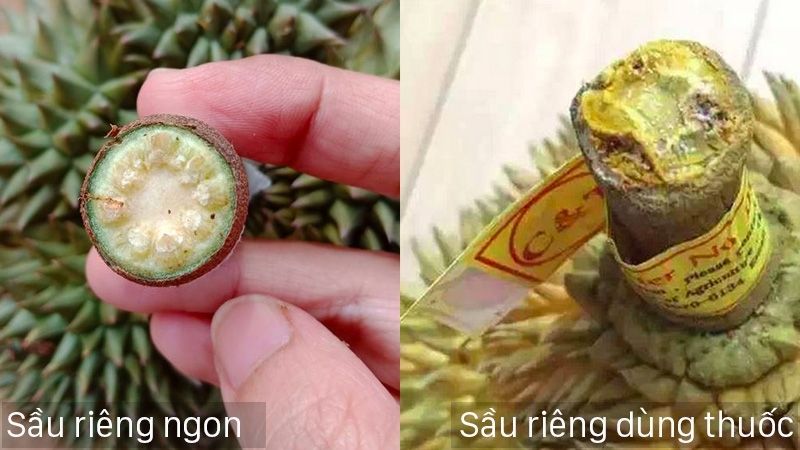
Look for Clear Fruit Lobe Surfaces
If you see yellowish powder on the durian shell or creamy powder on the stem, it could be residue from chemicals used for ripening. For durians with cracked shells, pressing the flesh will give you a sticky substance, indicating the presence of chemicals.

Inspect the Flesh
Naturally ripened durians are generally easy to separate, with the flesh coming apart easily. The durian flesh will have a shiny yellow color, a rich and smooth texture, and small seeds.
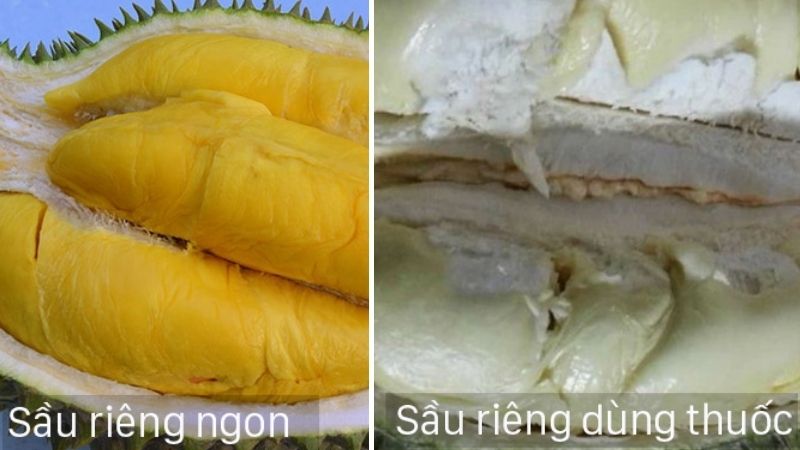
Check the Aroma
Naturally ripened durians have a strong and distinctive aroma, which can be recognized from a distance. Chemically ripened durians may have a milder aroma, and sometimes almost no noticeable scent until you get close to the fruit.
4. Identifying Signs of Unripe or Low-Quality Durians
When buying durians, you need to be able to identify signs of unripe or low-quality durians. Specifically:
- Overripe durian: The flesh attached to the stem has turned black, dark brown, or dark and is soft and mushy when touched.
- Spoiled durian: The outer shell looks fresh and beautiful, but when cut open, the flesh at the top is white. When touched, it will feel harder than the rest of the flesh. The part of the flesh attached to the stem may also be darker. When eaten, it will taste spoiled and firm.
- Leaking durian: When cut open, the flesh will release juice or liquid. This is due to excessive heat during transportation, causing the durian to spoil. These durians will not taste good, and the flesh will be spicy and lose its fragrance.
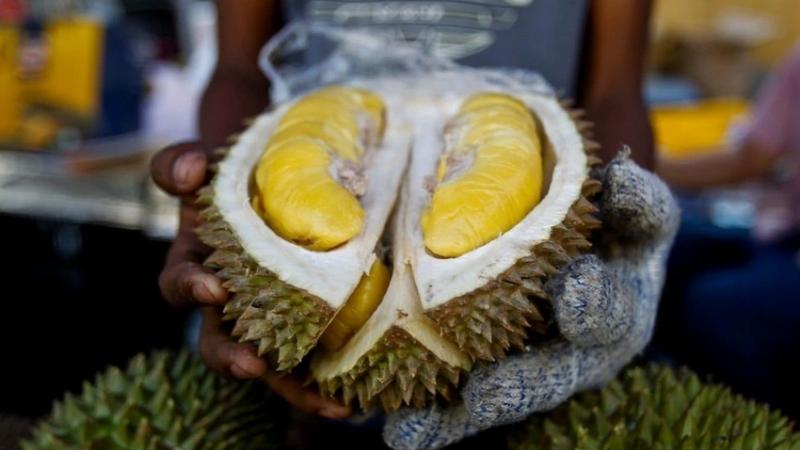
5. Popular Delicious Durian Varieties Today
Ri6 Durian
Ri6 durian is a well-known variety named after Mr. Sau Ri, who is considered the “father” of this fruit. Ri6 durians are extensively grown in the Mekong Delta due to the hot and humid climate. They have an oval shape, thin green-yellow skin, and a narrow base. The inner flesh is thick, sticky, yellowish, sweet, and moderately fatty.
Price range for Ri6 durians: 100,000-200,000 VND/kg

Thai Durian
Thai durians, also known as Dona durians or Monthong durians, thrive in Thailand’s hot and humid climate, similar to Ri6 durians. They have a small head and a slightly larger body. Thai durians are not as heavy as other varieties but are loved for their moderately fatty and mildly sweet flesh.
Price range for Thai durians: 65,000-100,000 VND/kg
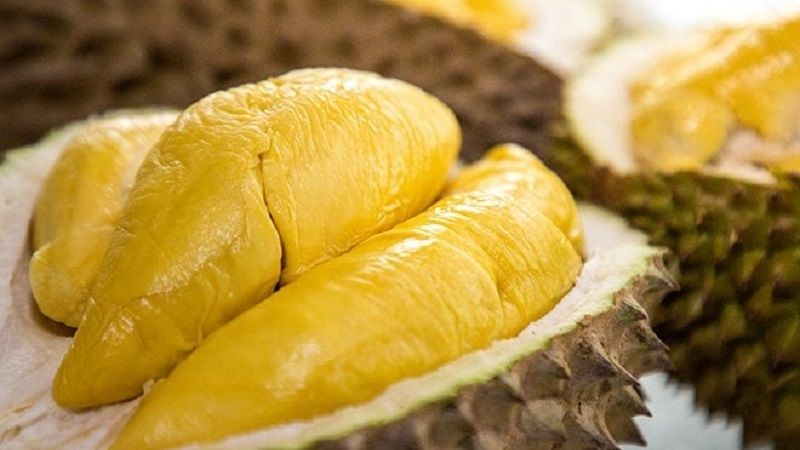
Mussang King Durian
Mussang King durian originates from Malaysia. It has an oblong shape, medium size, wide spacing between spikes, and a spike-less stem. Mussang King durian has a slightly bitter and mildly sweet taste, reminiscent of avocado. The flesh is thick, small-seeded, and has a beautiful yellow color.
Price range for Mussang King durians: 500,000-650,000 VND/kg
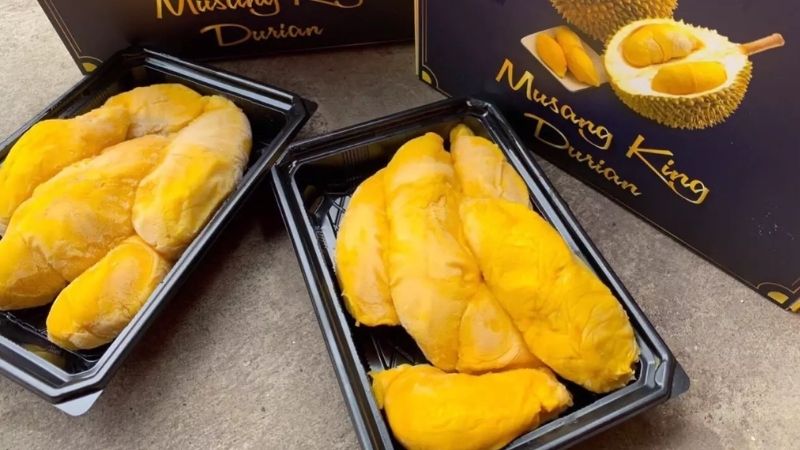
Dona Durian
Dona durians are grown in many regions but are most commonly found in the Mekong Delta and the Central Highlands of Vietnam. They have thick, yellow flesh that is visually appealing, a strong aroma, and a sweet but not overly fatty taste. Dona durians retain their taste for a longer time compared to Ri6 durians.
Price range for Dona durians: 109,000 VND/kg

Buffalo Stable Durian
Buffalo stable durians are named after their tendency to be found near cattle sheds in watery areas. The flesh of buffalo stable durians is soft, melts in your mouth, moderately sweet, and slightly richer than other durian varieties. Despite their unique name, buffalo stable durians are highly favored.
Price range for buffalo stable durians: 130,000-170,000 VND/kg
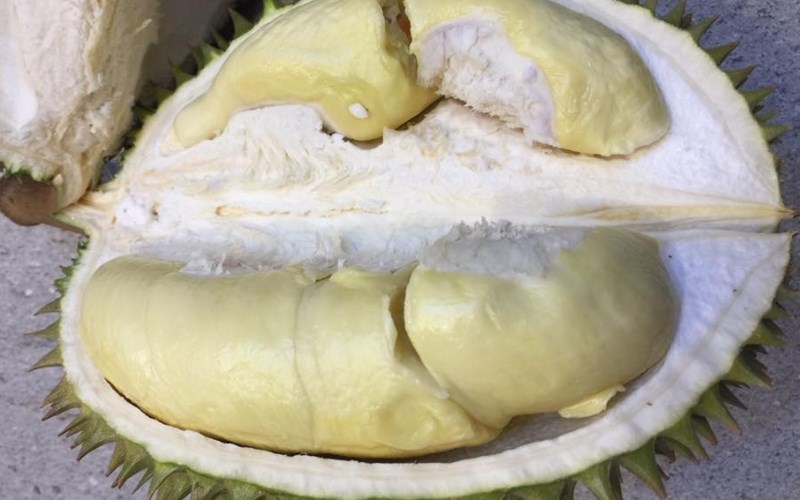
Red-Flesh Durian
Red-flesh durians are characterized by their unique dark red flesh. The flesh is flat, small-seeded, soft and smooth, sweet, and has a chocolate-like aroma. Although unusual, this durian variety is highly popular.
Price range for red-flesh durians: 220,000-450,000 VND/kg

Choosing good durians not only ensures a delicious taste but also ensures the safety and health of consumers. Apply these methods to choose the best durians.

























